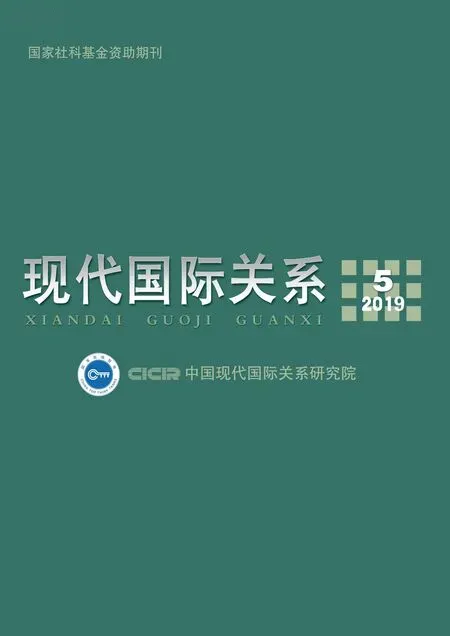Abstracts
G20’s20YearsStruggleforGlobalGovernance:Achievements,ProblemsandChinaSolutions
WangWen&WangPeng
Abstract: The G20 mechanism has developed into a “primary platform” for global economic governance since its establishment 20 years ago. However, its inherent flaws, the new challenges from contemporary global governance, and the strategic contradictions among the world major powers have led to a number of difficulties that may marginalize the “Hangzhou Consensus” to some extent. Based on literature research and field survey, this paper traces the 20-year evolution of G20 global governance in different stages, concentrates on its changing effectiveness and representativeness, and discusses its current predicament after the Hangzhou Summit 2016. Finally, the paper offers feasible policy recommendations for China to solve the current problems and make G20 effective again.
Keywords: global governance, G20 mechanism, Hangzhou Consensus, China Solutions
Sino-U.S.StrategicChoicesandChina’sRelationswithNeighboringCountries
SunXuefeng&ZhangXikun
Abstract: Since the latter half of 2017, strategic competition between China and the U.S. has gradually intensified, while the relationship between China and neighboring countries has stabilized. This split may be ascribed to two factors. The first is Donald Trump’s implementation of the “America First” policy, and the resultant decline in U.S. strategic credibility, prompting China’s neighboring countries to adopt a more cooperative stance toward China. The second is China’s reinforced strategic reassurance and positive response to the cooperation signals of neighboring countries. In the meantime, allaying their security concerns has improved China’s strategic credibility, thereby laying a foundation for improvement of the peripheral security environment. It is consequently imperative for China to grasp the present opportunity to resolve strategic and territorial disputes with neighboring countries and thus create a more favorable peripheral security environment that will ease its dilemma as a rising power.
Keywords: China’s peripheral security, strategic reassurance, America first, strategic credibility, rise dilemma
TheContinuityandChangeofLiberalHegemonyinDonaldTrump’sForeignPolicy
LiYongcheng
Abstract: Liberal hegemony is regarded as the grand strategy that served Presidents Bill Clinton,George W.Bush and Barack Obama,devoted to promote democracy abroad backed by America’s unipolar preponderance. More than two years into his presidency, evidence shows that Donald Trump has been presenting both continuity and change of liberal hegemony. The continuity lies in the ideological fact that Trump seeks to promote American values by containing Cuba and Iran, forcing regime change in Venezuela with a likelihood of military intervention, expanding NATO’s sphere of influence around Russia, and pressing China for policy change. The change is demonstrated by Trump’s policies to pursue hegemonic maintenance by promoting economic security, fair trade, and decreasing military use abroad in the greater Middle East. After nearly 30 years of theoretical and policy evolution, liberal hegemony becomes American gene of grand strategy, whose essential influence on US foreign policy will go beyond Trump well into the future.
Keywords: Liberal hegemony, John Mearsheimer, Donald Trump, US foreign policy
TheRealMotiveofTrump’sTradeWarIsaboutFiscalDeficit
DiDongsheng
Abstract: The real motive for Trump to launch the Sino-US Trade War is not rooted in solving the trade deficit, but rather dealing with its fiscal deficit. The massive tax cuts he promoted have widened US federal fiscal deficit, while the interest-rate rising by Federal Reserve Chairman Powell has led to a sharp surge in interest payment to serve the federal debt, further worsening the Trump Administration’s fiscal situation. Democrats can use debt ceiling and PAYGO provision to limit or even reverse his achievements. Therefore, Trump had to use the trade deficit as an excuse to raise import tariffs on key trading partners, thus reviving the previously denied "Border Adjustment Tax". This financial analysis can well explain the way and timing that he launched the trade war, as well as his other behavior. China should make proper adjustments to its negotiation strategy and creatively design the “Grand Bargain" between the United States and China by addressing the US’s fiscal situation.
Keywords: Fiscal deficit, tax cuts, trade war, Sino-US relation
ChangesandTrendsintheIndependenceoftheFederalReservesincetheFinancialCrisis
MaXue
Summary: In 2018, Trump repeatedly publicly criticized the Fed for raising interest rates too fast, breaking the president’s practice of not publicly intervening in monetary policy, and letting the Fed fall into the embarrassing situation of independence. In fact, since the financial crisis, the independence of the Fed has been continuously lost, and it has been characterized by gradual, passive and long-lasting. The reasons for this situation include the performance of the Fed in the financial crisis damaged its credibility, strengthening the political factors that affect the independence of the Fed, and the financial crisis and its consequences weaken the economic foundation of the Fed’s independence. These factors has strengthenedafter Trump took office. It led to a sustained and long-term trend that the Fed lostits independence, which will have a profound impact on the economy, society and politics.
Keywords: Financial crisis, Federal Reserve, independence, Trump administration
(Edited By Zhang Yimeng)

